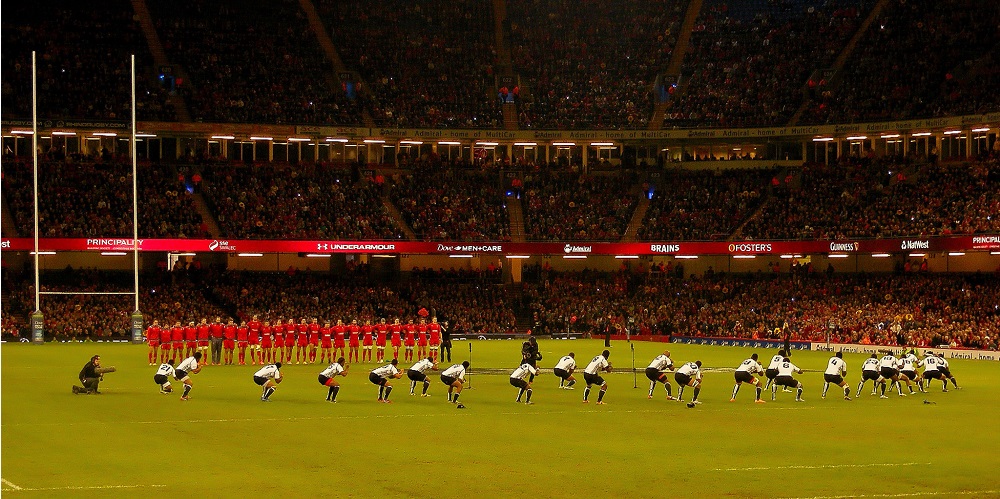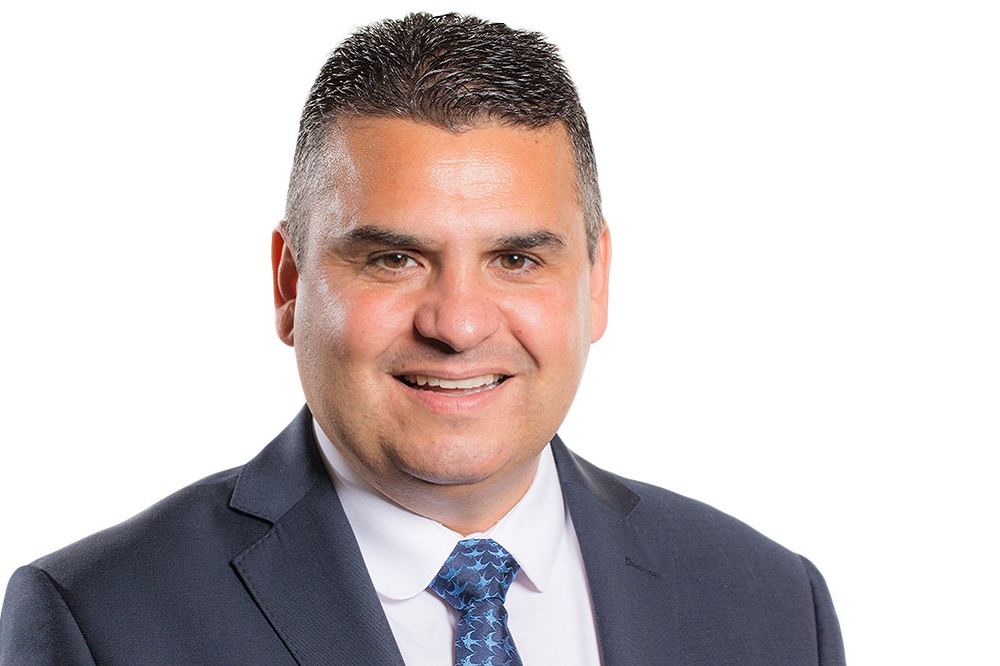Today’s Senedd Roundup: Calls for Welsh rugby to be placed on a stronger long-term footing

Owen Donovan, Senedd Home
Senedd calls for Welsh rugby to be placed on a stronger long-term footing
The Motion
The Senedd:
- Notes the importance of rugby to the people of Wales, the economic and social benefits the game delivers.
- Notes the financial and structural challenges currently facing Welsh rugby; the potential ramifications of the WRU’s “Project Reset” on professional rugby and the community and grassroots services the regions provide.
- Notes strong concerns voiced by fans regarding a potential merger of Ospreys and Scarlets.
- Calls on the Welsh Government to work with the WRU and regional partners to develop a sustainable long-term model for the game at a regional and grassroots level.
Proper engagement needed
Andrew RT Davies AM (Con, South Wales Central) believed there were mixed feelings in bringing forward this debate. Supporters were still celebrating the recent Grand Slam, but uncertainty in the regional game cast a shadow. He appreciated the WRU’s apology and clarification that would be no Ospreys-Scarlets merger for 2019-20, but a long-term threat to the four-region model remains.
“The financial structure and challenges currently facing rugby are there to see – sadly reflected in the failure of Welsh regions to make to this season’s knock-out stages of the Champions Cup. At present, we simply don’t have the resources to compete with England and France. We have to be clever, nimble and creative with what we’ve got.”
– Andrew RT Davies AM
While the national men’s team punches above its weight, that success had to translate to the regional game. The Welsh Government has a responsibility to protect the game, not just sit on the sidelines, while the WRU had to properly engage with supporters on change.
Dr Dai Lloyd AM (Plaid, South Wales West) called for better marketing of the Pro14 off the back of the national men’s team’s success:
“Let’s market the Pro14 properly. There’s very swish marketing of the English Premiership. We deserve that in Wales….Attracting more money to the game in Wales, obviously, is the huge challenge, but we are in a strong position….”
– Dr Dai Lloyd AM
Paywalls & bums on seats
Mike Hedges AM (Lab, Swansea East) cited three main problems. Firstly, poor attendances; no region averages more than 10,000 supporters a game. Secondly, TV income for the Pro14 is lower than England and France, making it more difficult for the regions to compete off the pitch. Finally, the weak grassroots game, where clubs are losing scores of players aged 16-19 and attendances are often in double-figures.
Rhun ap Iorwerth AM (Plaid, Ynys Môn) challenged assumptions rugby union was “a southern sport”; George North is a living example, while Llyr Gruffydd AM (Plaid, North Wales) intervened to say Bangor was a WRU founding member.
Rhun’s local club in Llangefni has a thriving youth section and plays fixtures across the region against similarly strong sides; he supported efforts to bring professional rugby to the north:
“I delight in seeing the young boys that I train being selected for youth teams in north Wales….creating idols in their own region, would be a major step forward….and I hope that the endpoint will be to bring professional rugby to north Wales, taking nothing away from the excellent professional teams we already have in the south. “
– Rhun ap Iorwerth AM
Huw Irranca-Davies AM (Lab, Ogmore) argued that at the very least the Welsh Government needs to support keeping the Six Nations on free-to-air TV:
“There are things that we know the value of and then things that we know the cost of. And if you look at the tragic tale of the England Cricket Board selling the rights to Sky in 2004, at big money that they reinvested in their game, and over 10 years the number of adults players in cricket dropped 20%. There were 6.6 million people who watched live coverage of the Wales vs England Six Nations match….So, let’s not put it behind a paywall.”
– Huw Irranca-Davies AM
Rugby faces “global challenges”
Replying on behalf of the government, Deputy Minister for Culture, Dafydd Elis-Thomas (Ind, Dwyfor Meirionnydd), told AMs that while Labour backbenchers would have a free vote, the government would abstain.
“…the changes we have seen in the game emanate from its growth as a global sport, and an important part of that….was that rugby sevens became an Olympic sport and created an interest in nations that traditionally hadn’t played the game….And that, of course, is a challenge to societies and communities that have followed rugby traditionally, but also to professional rugby and to the decisions that have to be taken as a result of these changes.”
– Deputy Minister for Culture, Dafydd Elis-Thomas
He stressed that the Welsh Government provides ample support to grassroots rugby already, particularly at school and youth-level. While the government has taken a “professional interest” in the WRU’s plans they were in no position to tell them what to do.
Vote
Sian Gwenllian AM (Plaid, Arfon) and Rhun ap Iorwerth AM joined government AMs and both Joyce Watson AM (Lab, Mid & West Wales) and Carwyn Jones AM (Lab, Bridgend) in abstaining.

AM calls for reform of children’s services
This week’s short debate came from Neil McEvoy AM (Ind, South Wales Central) on the issue of children’s services.
Time for change
Neil said the status quo wasn’t working. Social workers were overworked and there were too many gaps in the system; it was now not uncommon for social workers to have 40 children on their books when they’re only supposed to have 20.
The number of children in care in Wales has also increased by 36% over the last nine years; each local authority placement costs £23,000.
He went on to cite a number of examples where the system wasn’t working, including one family where medical reasons behind a child’s behaviour (caused by lack of oxygen at birth) weren’t fully considered – despite social services saying there was no threat to the children – resulting in all four children being taking away from the mother. This was after they asked for social service help.
“As a general rule, there’s huge class discrimination in taking children into care: do not be working class; do not be on a low income; do not be without formal education; do not be a former child in care; do not be a former victim of child abuse or rape, because, I tell you, in some circumstances, all this will be held against you and I’ve seen the cases to prove it. I’ll tell you also, don’t be a feisty mother trying to protect her offspring, because this will also be held against you; you will be called ‘aggressive’ and you will be called ‘uncooperative’.”
– Neil McEvoy AM
Neil McEvoy claims he’s been banned from attending child protection conferences in Cardiff after a father who was domestically abused by his partner wasn’t offered any support and while there was a known paedophile threat whilst the children remained in the mother’s care. He raised the latter issue at a conference and was told, “It won’t happen again”.
Safety of children is paramount
Deputy Minister for Health & Social Services, Julie Morgan (Lab, Cardiff North) appreciated the work of the people on the front line and said she was impressed by their dedication and passion. The priority has to be the safety of children and this meant making difficult decisions:
“I think, as Neil McEvoy did acknowledge in his contribution, that the safety of our children is paramount, and whilst we do all we can to work with families to keep the family unit together, sometimes, it is in the best interest of the child to live in a different arrangement, and that is and should always be a last resort. This, of course, could be with their extended family or friends, or often with grandparents or in more formal arrangements such as special guardianship or kinship foster placements.”
– Deputy Minister for Health & Social Services, Julie Morgan
The Deputy Minister promised to work with councils to reduce the number of out-of-county placements and to reduce the number of children in care in general. While she welcomed scrutiny of care arrangements, it had to equally be acknowledged that social services were committed to working in the interests of children.
Has the issue of affordable housing become bigger than government?
Upfront letting fees to be banned in Wales by this autumn
Yesterday, the Senedd passed the Rental Fees Bill which will ban a number of upfront letting fees and gives the Welsh Government the power to regulate certain other fees like holding deposits.
Minister for Local Government & Housing, Julie James (Lab, Swansea West), said many constituents will have been at the sharp end of letting fees and this Bill rebalances the relationship between tenants and landlords. There was a further update on the timetable by which the Bill will come into force:
“Leanne Wood argued most passionately on behalf of students who wish to see fees banned in time for the start of the new academic year this autumn. That is my wish as well. Subject to the passage of the Bill through this final stage and subject to Royal Assent being granted, I intend for the Act to be commenced by the autumn.”
– Minister for Local Government & Housing, Julie James
Shadow Housing Minister, David Melding AM (Con, South Wales Central), said the rights of both tenants and landlords had been correctly balanced in the Bill. Good landlords and letting agents had nothing to fear and it could help them in the long run by “weeding out unscrupulous practices”.
For the record, UKIP’s Neil Hamilton was the only AM who voted against.
Support our Nation today
For the price of a cup of coffee a month you can help us create an independent, not-for-profit, national news service for the people of Wales, by the people of Wales.





